TOP 10 ENTREPRENEUR INSIGHTS COUNTDOWN
There are foreseen and unforeseen challenges that arise with any new venture.
One of the most inspiring aspects to the WEST Growth community is the interest and willingness of our client partners to help one another and anyone who dreams big and follows their passion to make a difference. Here is a glimpse into the experiences of our clients and the valuable insights they’d like to share with you. Enjoy the top 10 countdown read!
-
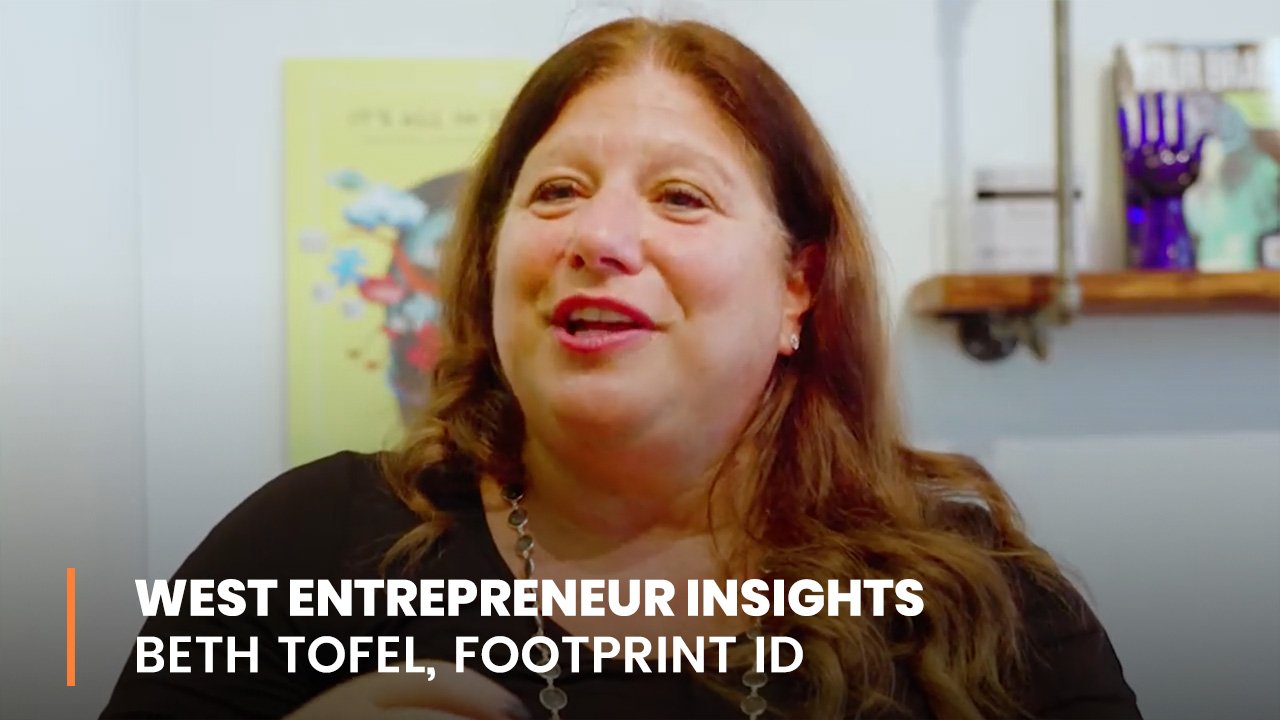
ENTREPRENEUR INSIGHT #10
Keep the Start-Up “Roller Coaster” in perspective by maintaining a lens of learning.
Beth Tofel, Footprint ID
I think that when we do this, we all – most of us, I would imagine – intellectually know what we’re in for. It’s a roller coaster. You’re going to have great things happen. You’re going to have rejections. You’re going to have false starts. And you learn a lot about what you don’t know once you start. I think that the biggest challenge for me – making sure that I was able to keep what I knew in my head apart from the emotional side of the business. Which is never easy, because you get caught up in the moment… [read more]
Stay balanced and know that every sale doesn’t mean your company is now worth $500,000,000. Every rejection doesn’t mean that you’re finished, and every false start doesn’t mean you are going out of business.
Remembering to stay balanced and remembering that I signed up for a roller coaster was one of my personal challenges. I try to remind myself, number one, that sometimes mistakes happen. Then, I turn those mistakes into learning experiences. I step back and ask, why hasn’t my desired outcome happened?
I find it most productive to analyze and consider what I would do differently if I found myself in the same situation. What would I do to create a better outcome?
-
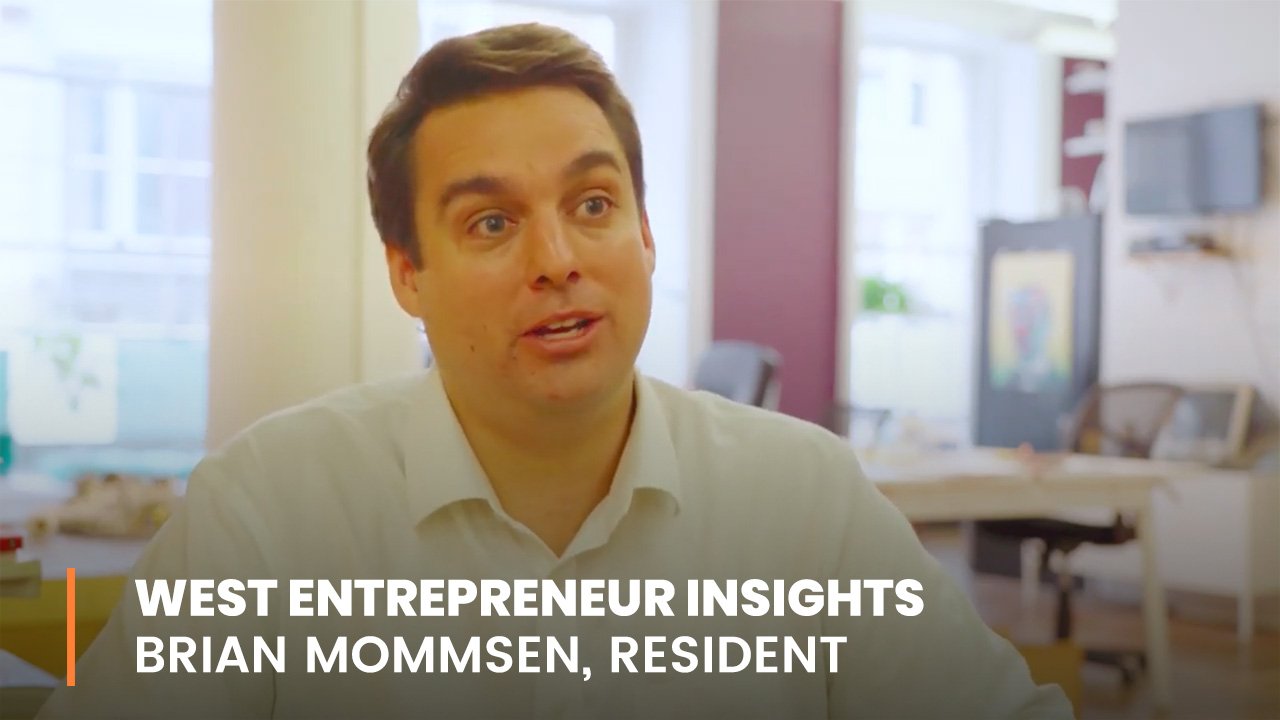
ENTREPRENEUR INSIGHT #9
Changing purchase psychology requires diligence and demonstration of both qualitative and quantitative benefits.
Brian Mommsen, Resident
With Resident, we are introducing a new concept. And as such, there’s an educational process that exists with our clients and our partners that we have to go through to be able to discern for them the value of working with us on a recurring basis. The most difficult aspect was, and is, convincing the real estate developers that despite the fact that we’re still small, we can create value for them that will snowball in terms of our ability to bring really influential people to the table, and the target demographic that they’re searching for. The Resident brand is growing, and more and more people are hearing about us and wanting to engage us.
I think almost every one of the real estate relationships we’ve built thus far initially took place over a Resident dinner. There have been conversations about how Resident can enter into their space and create value for them.
I would say that the most important thing to do is to change people’s psychology and just educate them on an opportunity that we think is quite big.
It’s sort of this mix, this cocktail of different ingredients, some of which are more quantifiable than others. But when you bring them all together in a package, you get something that we’ve had success with in terms of generating traction with our real estate partners.
-
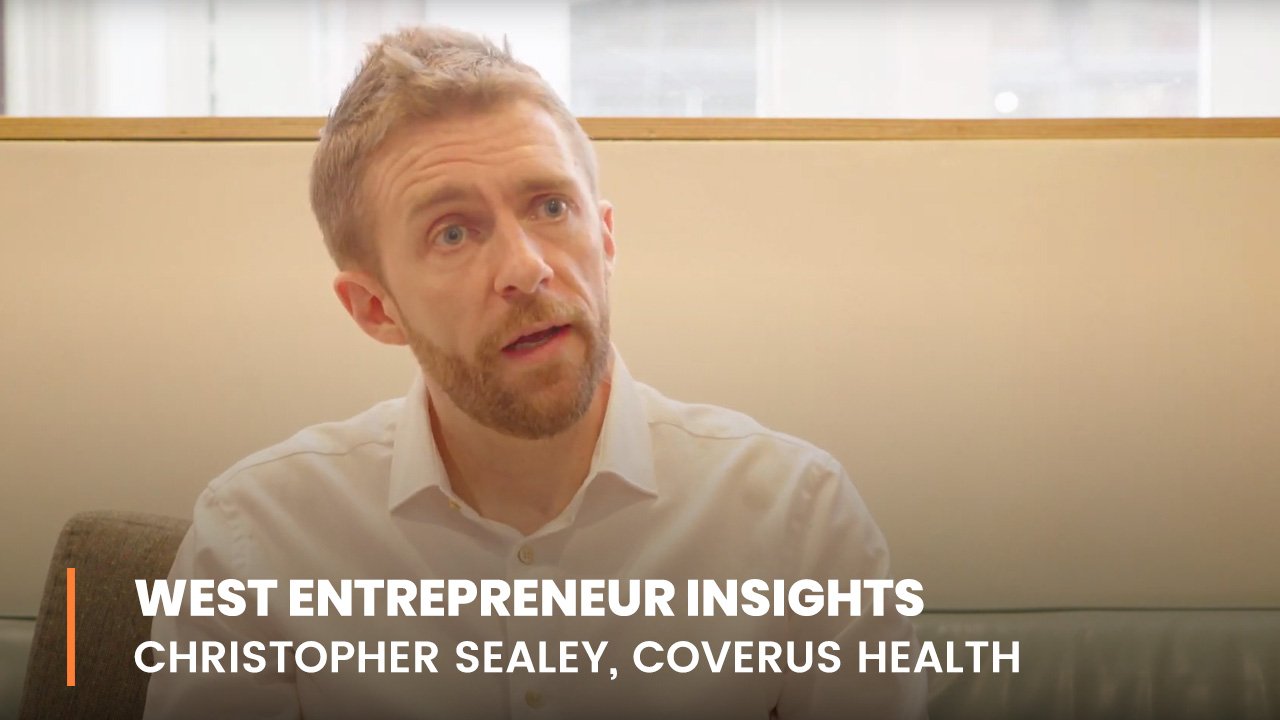
ENTREPRENEUR INSIGHT #8
Having a visionary, disruptive idea requires identifying and attracting equally visionary partners and employees.
Christopher Sealey, CoverUS
One of the biggest challenges any entrepreneur could face is communicating a new idea. We all like to think we’re making new markets and being blindingly innovative, whether or not we actually are. But with that comes a degree of challenge in terms of finding your early adopters, finding the right partners, and knowing where and how to spend your time.
When you’re creating a new marketplace, the challenges can really feel overwhelming, especially when you’re a small startup with big ambitions. But, like most startups, success really comes down to your team. It’s not just the people who are doing the work, but it’s actually the people who are powering it. We need to look for visionaries at all levels of the organization.
I need employees who can get jobs elsewhere that are much better paying, but believe in a future powered by CoverUS. I need investors who are concerned about their returns but don’t need them to come right away, and believe that this is something that will be far bigger than any one round. And I need partners in the healthcare industry who know that this disrupts their daily practices but realize that this vision is where we’re all going to end up.
So we’ve really learned that we’re not going to change the pace of healthcare. But, by being really bold about our vision, and being very practical and very exacting about our execution, we’re starting to root out the leaders in the healthcare industry who see this as something that they can get behind and see this as something that will be an inevitability tomorrow, even if it takes time out of their schedule today. While our product is still refining its product market fit, the idea of our company fills a need that we all believe in with our hearts.
-
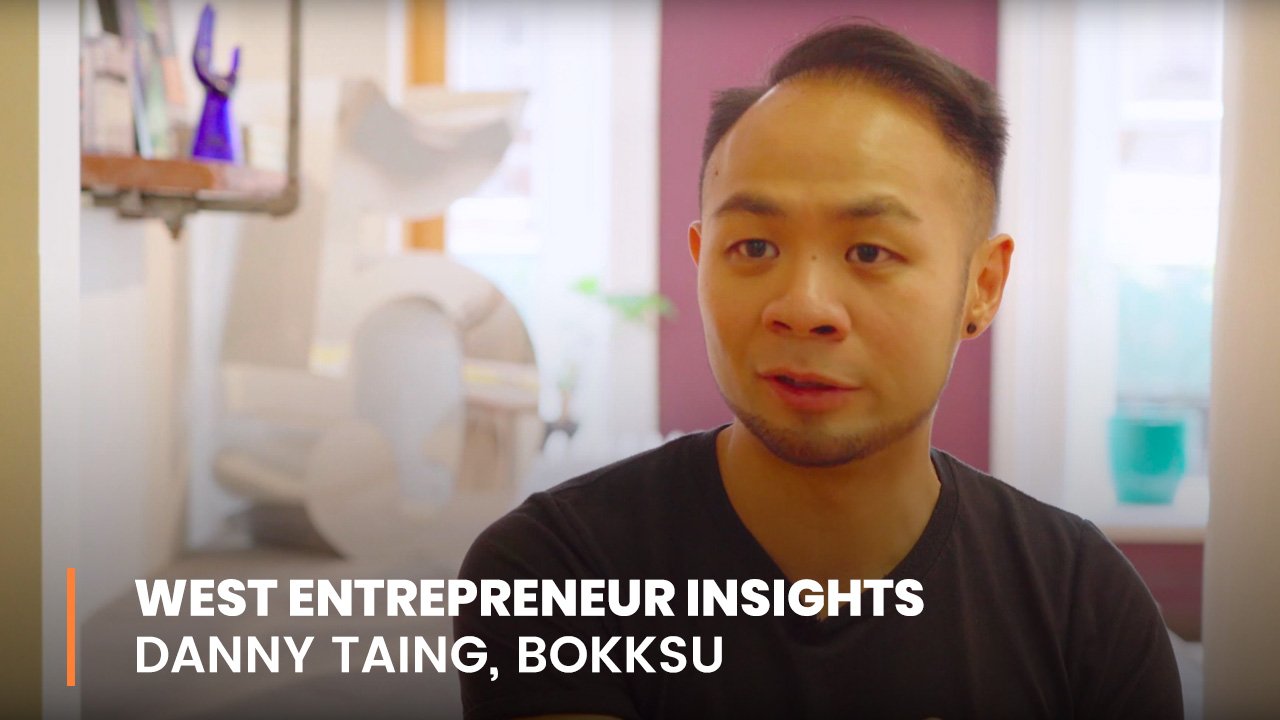
ENTREPRENEUR INSIGHT #7
Anticipate operational demands for growth (even when you don’t expect them).
Danny Taing, Bokksu
In January of 2018, we had over 1,000 subscribers. That was really exciting for us because we broke through 1,000 after just a year, which was great! But then, we introduced a really popular themed box called the KitKat Love. It featured 10 different flavors of Japanese KitKats for Valentine’s Day, and it went crazy viral on Facebook. We ended up getting 2,000 new subscribers in the span of a few weeks. Our subscriber base was doubled, tripled!
And we said, oh my god, this is so exciting! But our Japanese fulfillment center that we just started working with told us, “You can’t slam us with this many orders at once.” They didn’t allocate enough manpower to pack these boxes. We had been growing so organically that I didn’t think about what hypergrowth would mean, and it broke everything.
So, we ended up developing more policies. Now, whenever we plan any promotions, or we anticipate anything else that might trigger hypergrowth, we alert our fulfillment house in advance so that they can staff appropriately, prepare and prepack.
The fulfillment house also now applies an assembly-line style, which was an adjustment for them too. We are glad we didn’t have to change vendors. It’s been a lot more efficient.
-
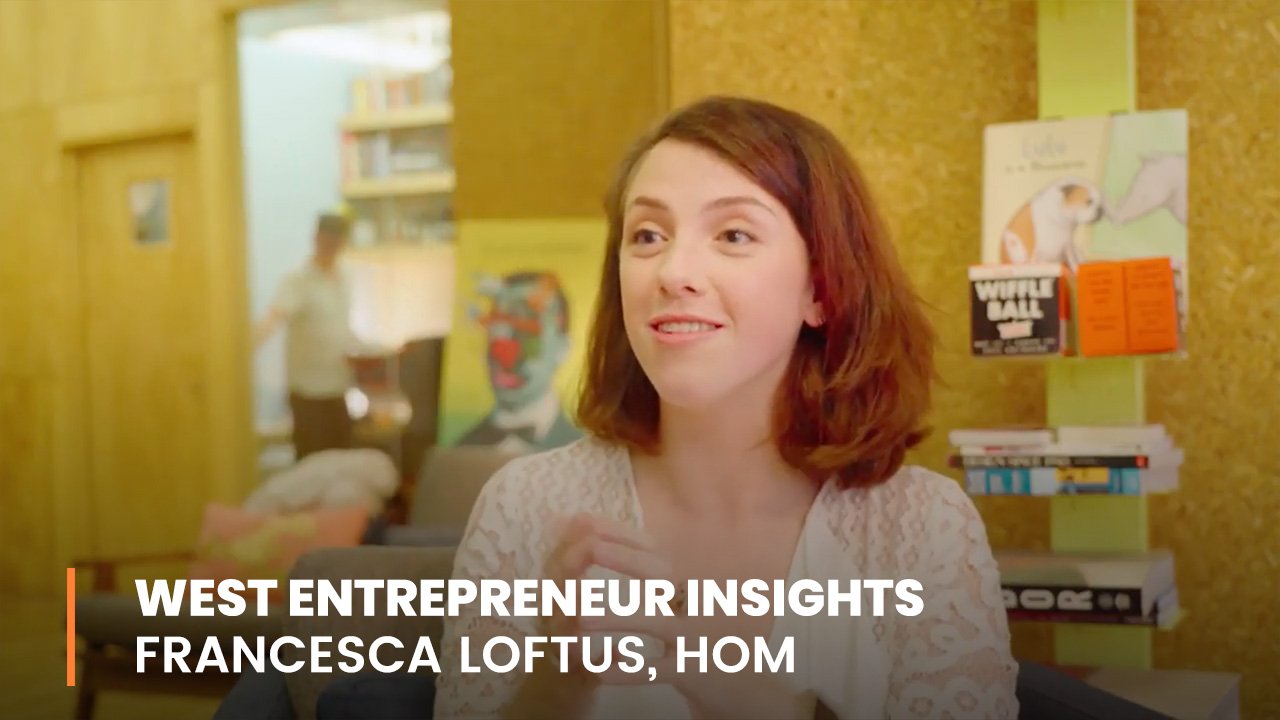
ENTREPRENEUR INSIGHT #6
Culture Management is massively important as you grow.
Francesca Loftus, hOM
As we started doubling in revenue, we started doubling our staff. We were very excited to say, “Oh, we’re hiring 3 people this month!” But, you need a manager for every x number of people, because they’re going to have questions and concerns and as the company grows, communication becomes harder. We didn’t see at the onset that culture management would play a massive role in the company.
We started the company thinking that everybody would fit in these unilateral “tribes.” We didn’t need managers, we were such hippies! But we quickly realized that a more traditional management structure just makes sense, especially when you’re growing quite quickly and you need training and culture management. We ended up creating a typical company structure with managers and executives above them. And that has absolutely helped.
Also, just cutting down the number of meetings and making sure that they’re very specific to the teams that you’re on or the level that you’re at in the company has helped our productivity.
-
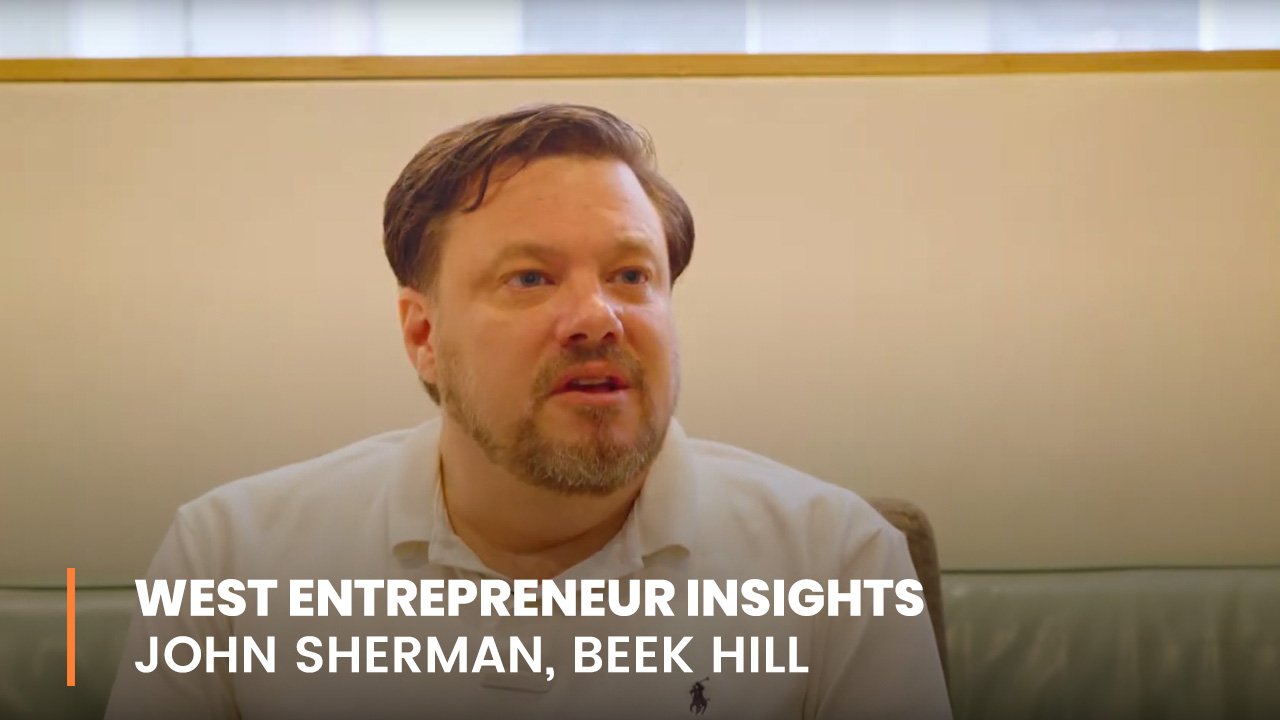
ENTREPRENEUR INSIGHT #5
It is critical to build trust early with your team (especially when people have different competencies).
John Sherman, Beek Hill
I’m not a technology person. My experience is in the field within which the technology was built, which is commercial real estate. I don’t know how to code, and I don’t have a development background. So, I had to bring in people to help me with that.
Before they could trust me and before I could trust them, we spent a little over a year working on this part-time as a side project. They wanted to see how I would perform, and I wanted to see how they would perform. We didn’t know each other before this project. Instead of just jumping into bed, crossing our fingers and hoping things would work out, we actually put the time, effort and energy to work with each other, understand each other, and make sure we were comfortable. If you think about it, that trial period was the dating period. Once we started the company, we got married.
I’m a very Type A personality, like most people who start a company, and I like to be able to control as much as possible. One of the most challenging and fun things about starting a company is personal growth. And part of that personal growth is learning to trust other people and be able to operate in areas that I’m not familiar or comfortable with. It’s been a great opportunity for me to grow personally and be able to build that trust. My has accomplished that through communication, and through time. Those are the only ways that I know to build trust. And, obviously, results matter. With proper communication, time and the delivery quality results, the trust keeps growing.
-
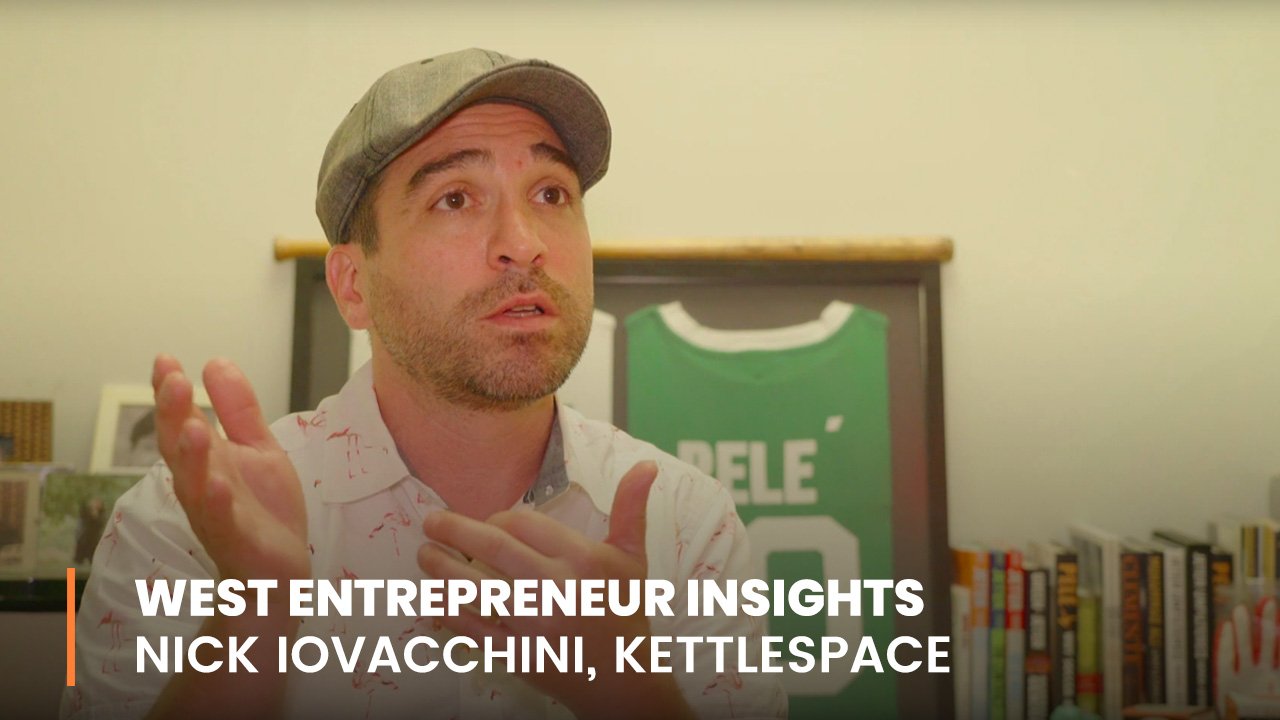
ENTREPRENEUR INSIGHT #4
You need to identify key pivot points and know when to make the right shifts.
Nick Iovacchini, KettleSpace
I’ve been an entrepreneur my entire career. I feel like it’s part art, part science. The science lies in the process: developing your plan, understanding your key execution points, and holding yourself accountable to hitting them. You also need to be self-aware and realize things that you may not have considered, like changes in the market or unexpected feedback from your customers. You need to quickly decide whether something warrants a change in thinking, or whether it’s best to push through execution.
Every single day, I play a short game, and a long game. Keeping those two approaches working in parallel to move the chains is challenging, because priorities are constantly changing. Your sequence of what you planned versus what you need to do on a given day, week, or month is also changing. So, resource allocation when resources are constrained and picking the right bets are a big part of the game. For me, picking where you fail on a daily basis is as important as picking where you succeed. It’s always difficult to purposely fail knowing you could do better at something else. You need to recognize when your energy and resources need to be applied elsewhere, because you’re being faced with a more critical, non-fail scenario.
-
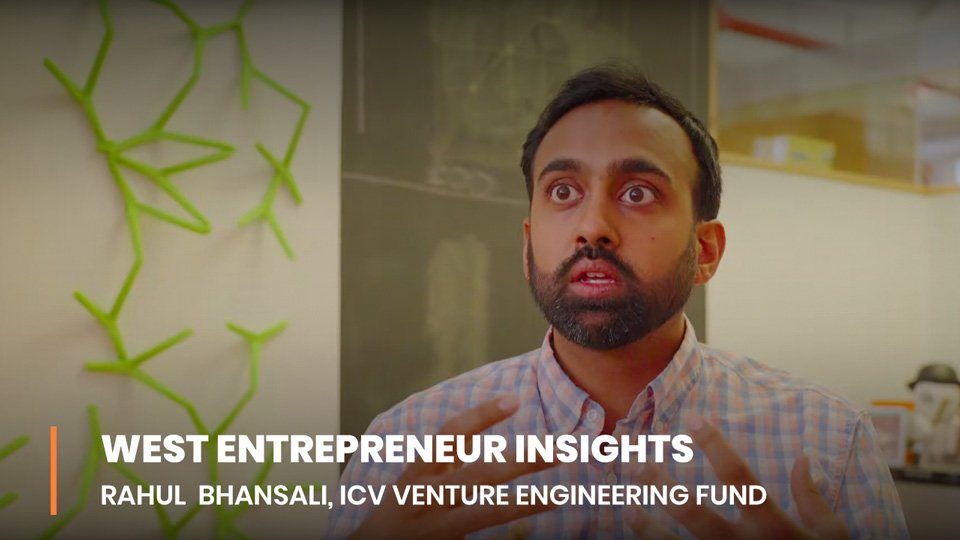
ENTREPRENEUR INSIGHT #3
Creating an environment of active listening will have a material effect on the success of your business.
Rahul Bhansali, ICV Venture Engineering Fund
If there’s one thing that I could choose to really focus in on, it’s active listening. Active listening is a process that involves three levels of listening:
Level 1 — I’m just listening to what you’re saying. The words are registering, but my mind is in another place.
Level 2 –I’m hearing the words that you’re saying, and I’m thinking about what to say next. What is the next thing I want to say to you based off of what you’re telling me? I’m still very focused on what you’re saying, but I’m trying to get to my response.
Level 3 – I’m listening to you, and I’m putting myself in your shoes. I’m thinking about where you’re coming from. How you’ve gotten to where you’re at. What are the backstories to all of your thinking? I’m so involved in who you are and what’s making you say the things you’re saying that I practically lose myself. It’s like a psychic connection. All of the questions that I need to ask and all of the further conversation that I want to get into will just naturally occur as a result of Level 3 active listening.
When I engage in Level 3 active listening, I pick up on realities that others in my organization understand. These things tend to have a material effect on the success of our business. We’ve seen it happen time and again. They’re golden nuggets. Things that don’t come out unless you’re actively listening to somebody. Oftentimes, they become the very engine, the very core fuel that makes a company successful.
-
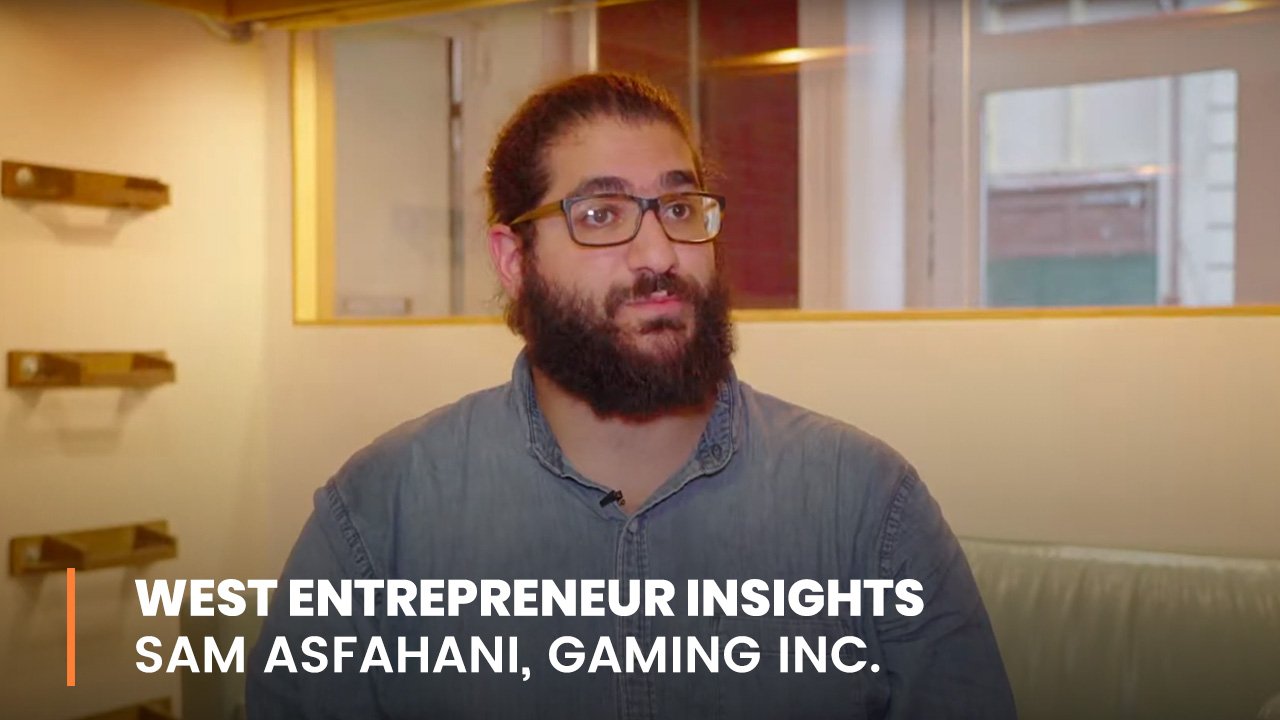
ENTREPRENEUR INSIGHT #2
You can’t expect staff to work as hard as you do on your company
Sam Asfahani, OS Gaming
You can never expect someone else to work as hard as you do on your company. That’s something a mentor taught me. They didn’t start it. It’s not their company, it’s not their vision. They don’t have equity in it – or maybe they do, but it’s less – so you can’t expect them to put in the time and effort that you’re going to put in.
I think you have to approach a reality like this from both ends. You have to learn how to incentivize people. You have to learn what makes people tick. You’re a startup, so you can’t just pay as much as you want, and you quickly learn that pay is not the only thing that drives people. It’s culture, it’s empowerment, it’s other incentives, it’s all the benefits that come around – like working as part of a team. You quickly learn about building culture when you’re starting from nothing.
I absolutely had to change expectations. Sometimes you have to reset your mentality and say, you know what? Everyone succeeds if this company succeeds, but I’m going to succeed more. It’s just the way business works. So, of course, there needs to be more input if I’m expecting more output. It’s very different from a corporate structure and work environment.
-
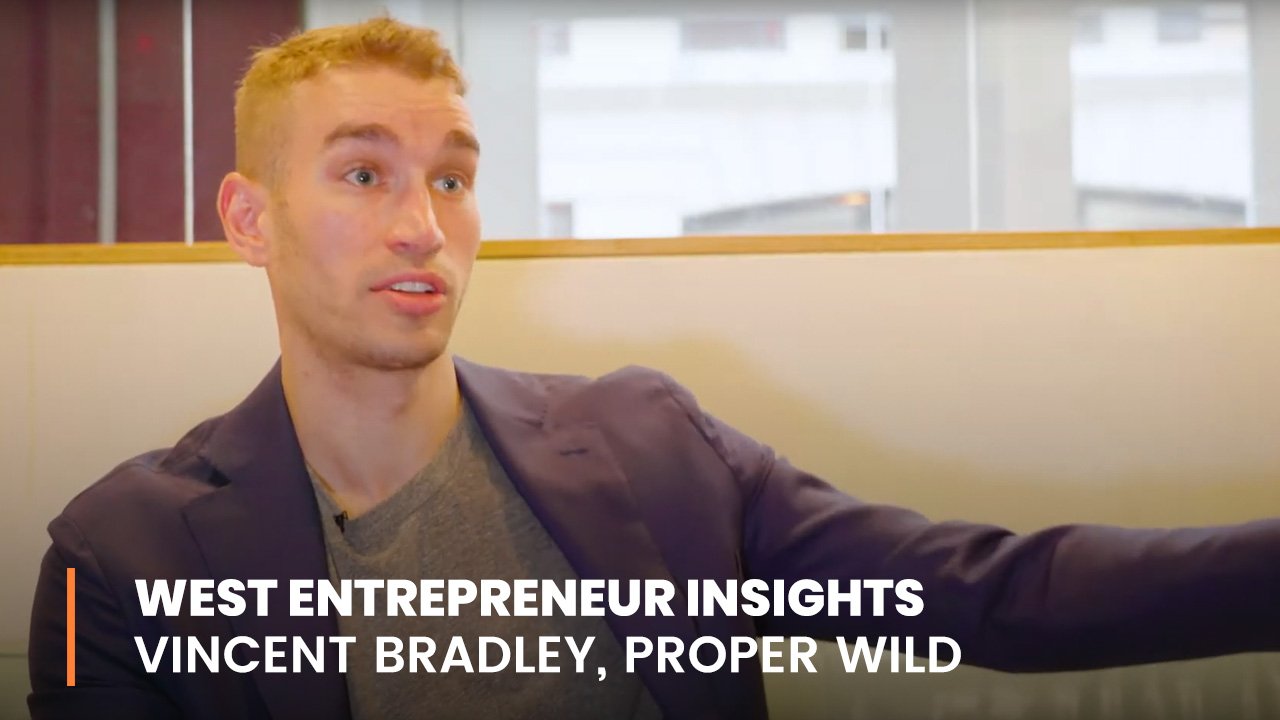
ENTREPRENEUR INSIGHT #1
You need to find the right balance between ideal product and speed to market.
Whenever you’re starting a new company, you always have an idealized version of what your product should be, and it’s perfect. Then you get into the reality of building it, and you realize it’s not possible to hit every single box…or maybe it is, but you need to make some compromises. That’s a big challenge we’ve had to go through with Proper Wild. We had to find that balancing point of where we need to get launched, get to market, and then continue to iterate and improve on the go.
Here’s a real world case in point: I started Proper Wild knowing that coffee was failing me, and knowing that I wanted to consume better ingredients than just the caffeine found in coffee. So we researched, and we found this organic caffeine from green tea that’s farmer-grade. It’s incredible, clean, and organic, and it’s some of the purest caffeine in the market. Then, we found really high quality L-Theanine, and we sourced high-quality panax ginseng from China. The functional benefit of our product went through the roof.
But, then we had to make it taste good. And that was an enormous challenge that no one in the energy shot and beverage market had cracked. There’s a reason why energy drinks contain so many preservatives and artificial sweeteners: it’s because it’s the fast, quick way to market. It’s easier to make a drink taste good and remain stable for a long time on the shelf – 1, 2, 3 years – when you pack it full of preservatives. It’s a lot easier to keep the calorie count down and make it taste good when you pack a drink with artificial sweeteners. We wanted to create something mostly organic with clean ingredients – real ingredients – and it was a real challenge to not use preservatives or artificial sweeteners, and to produce a product with a functional benefit that actually works.

WEST Growth, a subsidiary of Wiss, is dedicated to helping founders generate a meaningful Return On Sacrifice. WEST was launched and led by a team of seasoned entrepreneurs, corporate execs and CPAs who apply deep industry experience, expertise and passion to help ensure that early growth companies achieve the next level of success. The WEST tech enabled Accounting + Strategic Growth platform puts clients on the fast-track to building investor confidence, securing strategic partners and overcoming inefficiencies that are holding you back.